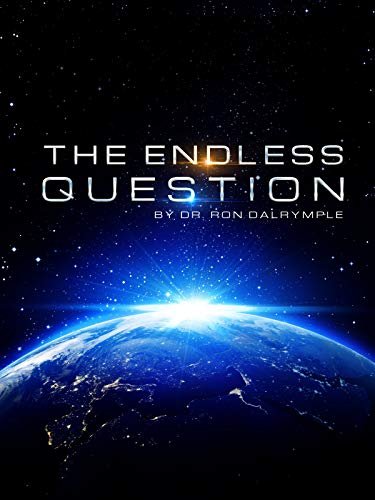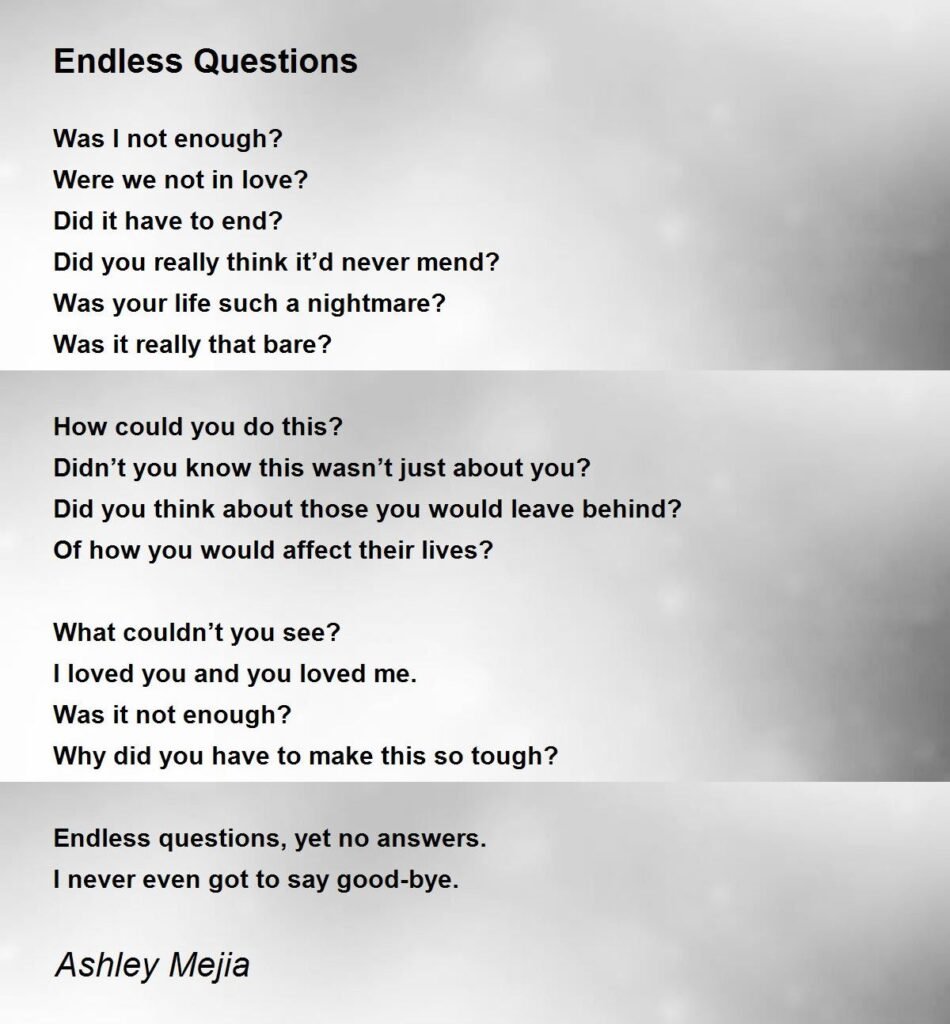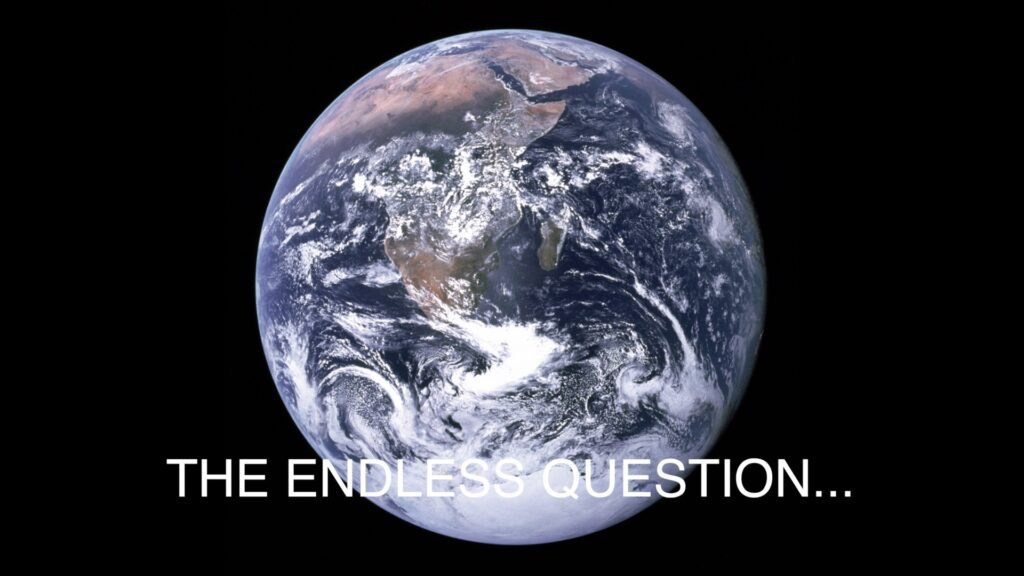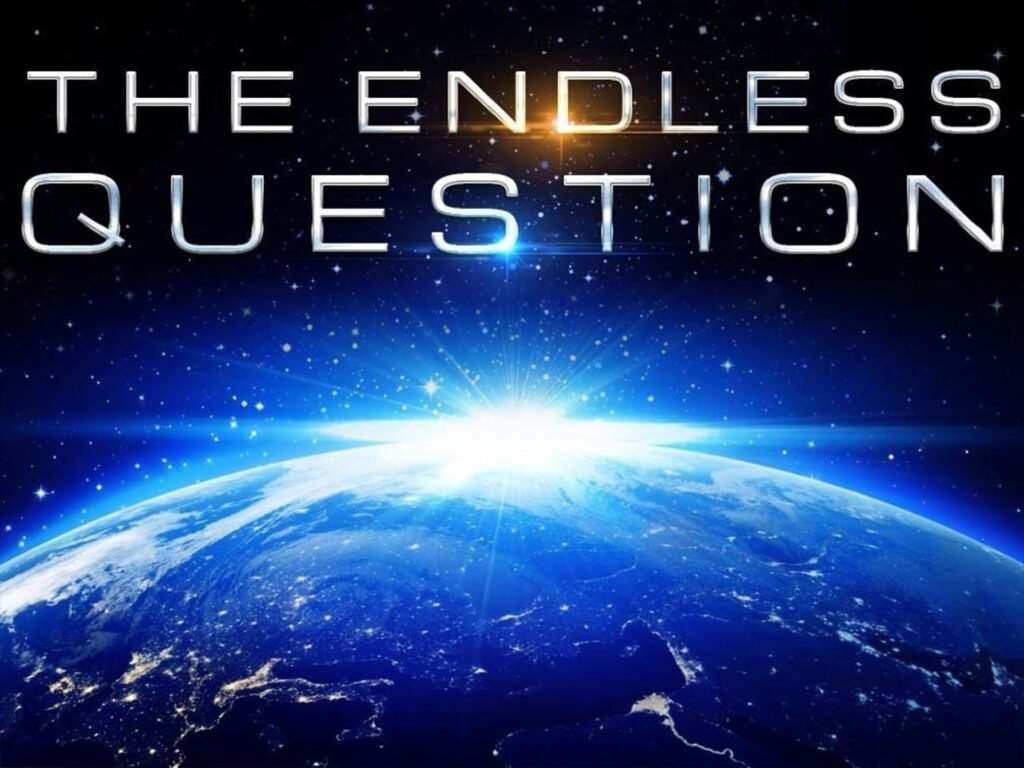
Imagine stepping into a world where every turn brings a new query, a fresh puzzle to unravel – that’s the essence of “Endless Question.” Your curiosity is the protagonist in this winding journey through the boundless realm of inquiry, where each question leads to several more, weaving an intricate tapestry of thoughts and ideas. In the heart of this adventure lies the one question that, once answered, promises to shed light on the countless others, guiding you through the labyrinth of your own boundless curiosity.
The Nature of Inquiry
Defining Endless Questions
You’ve encountered questions with clear answers, but have you considered the nature of endless questions? These are inquiries that spark further questions rather than conclusive answers. They perpetually stimulate thought and discussion, often with the charm of abstraction and the allure of the profound. These questions don’t frustrate; instead, they invite you into an ever-expanding conversation where the journey is more rewarding than the destination.
Historical Perspectives on Inquiry
Through history, you’ve seen the pursuit of understanding as a hallmark of your civilization. Philosophers like Socrates and scientists like Newton have posed questions that have propelled humanity forward. Inquiry has had various schools of thought, with differing methodologies. From Plato’s ideal forms to the Renaissance’s empirical observations, every epoch has its unique perspective on the art of questioning.
The Role of Questions in Human Progress
Questions are the engines of intellect, driving the wheels of human progress. They compel you to look beyond the known, to challenge traditional beliefs, and to foster innovation. The role they have played in shaping societies, advancing technology, and improving your lives is immeasurable. They are not mere requests for information but rather catalysts for change.
Psychological Aspects of Questioning
Curiosity as a Driving Force
Curiosity is inherently human, an innate drive that propels your quest for knowledge. It nudges you towards understanding the complexities of the universe and your place within it. As a child wonders at the stars, so do you, throughout your life, pursue the answers to what perplexes you. This inquisitive nature is a testament to the intellectual vitality within you.
The Anxiety of Uncertainty
While curiosity drives you, the twin shadow of uncertainty often accompanies it. The not-knowing can cause discomfort, an itching desire for resolution. This anxiety is a psychological response to the unknown, a reminder of the unpredictable nature of your existence. Yet, in grappling with uncertainty, you often find wisdom and emotional resilience.
The Joy of Exploration and Discovery
Opposite to anxiety is the exhilaration of exploration and discovery. When you unravel a mystery or illuminate the obscure, there’s an unrivaled sense of achievement. This joy is not diminished even when one answer leads to more questions. Each discovery is a stepping stone in the vast landscape of knowledge, a landscape that you’re eager to traverse.

This image is property of Amazon.com.
Philosophical Dimensions of Endless Questions
The Search for Absolute Truth
In your philosophical quests, you seek absolutes: truth, reason, and meaning. These noble pursuits have filled volumes with discourse as you grapple with the notions of reality and existence. Endless questions in this realm tend to emphasize the journey — a spiral of thought that enriches your understanding of yourself and the world around you.
Existential Queries and the Human Condition
Existential questions touch the core of the human condition: Why are you here? What is your purpose? These queries have no final answers, yet they’re central to your philosophical exploration, prompting reflection and sometimes profound personal transformation. They provoke a quest for individual significance in an expansive universe.
Epistemological Considerations of Infinite Inquiry
Epistemology studies the nature, origin, and limits of human knowledge. Within its domain, endless questions are a reminder of the boundaries and scope of what you can know. This branch of philosophy suggests that while some things can be known, there are vast territories of thought that remain forever beyond the shores of human comprehension.
The Role of Endless Questions in Science
Scientific Revolution and Perpetual Questions
The Scientific Revolution taught you to query nature methodically, fostering a culture where endless questions are not just accepted but needed. Each answer raises new questions, propelling science forward in a self-sustaining cycle of knowledge acquisition. It’s a testament to the dynamism of scientific inquiry.
Theoretical Limits and the Unknown
Science thrives on exploring the unknown, but you’re also aware of theoretical limits. Concepts like Gödel’s incompleteness theorems or the Heisenberg uncertainty principle exemplify constraints in understanding. Yet, these limits do not hinder science; rather, they frame the sublime landscape in which you explore.
Ethical Implications of Never-Ending Questions
As you push the boundaries of knowledge, you’re often met with ethical dilemmas. Biotechnology, artificial intelligence, and other fields raise questions about morality and humanity’s future. The never-ending quest in science is not just about what you can do, but also about what you should do, underscoring the role of ethics in your pursuit of knowledge.

This image is property of img.poemhunter.com.
Religion and the Infinite Quest for Meaning
Theological Questions Without Final Answers
Religion grapples with questions that bridge the mortal and the divine. These questions often remain, by their nature, without final answers, offering instead a framework for faith and understanding of the mystical. Theology provides a path to explore these questions, not necessarily to answer them but to understand their significance in your lives.
Intersections of Science and Spirituality
The confluence of science and spirituality reflects a deep human need to make sense of the cosmos. You ponder the origins of the universe, the nature of consciousness, and the possibility of an afterlife. Here, endless questions encourage a dialogue that respects both empirical inquiry and spiritual introspection.
Faith in the Face of Unanswerable Questions
Faith thrives amidst unanswerable questions. It offers solace where reason cannot reach, providing a sanctuary for the human spirit. Whether through organized religion or personal spirituality, faith equips you with a lens to view the imponderables not as voids of despair but as spaces of hopeful contemplation.
Literature and the Art of the Unsolvable
Endless Questions in Classic and Modern Literature
Literature has always been a sanctuary for endless questions. From the tragic queries of Shakespeare to the existential musings of modern authors, writers use their craft to probe life’s mysteries. These literary works encourage you to think deeply and to appreciate the ambiguity in the human narrative.
Narrative Tools for Exploring the Imponderables
Authors employ narrative tools such as allegory, metaphor, and symbolism to tackle the imponderables. They craft stories that draw you in, challenging you to explore complex themes through the safe distance of fiction. Through these stories, you’re invited to confront the unsolvable, guided by characters and plots that mirror your own quest for understanding.
Metaphor and Allegory in Unending Inquiries
Metaphor and allegory enrich literature with layers of meaning, turning simple stories into explorations of the unfathomable. They transform the abstract into the tangible, allowing you to navigate concepts that defy straightforward explanation. As you immerse yourself in these literary devices, you partake in a journey of interpretation that stretches the boundaries of your imagination.

This image is property of Amazon.com.
Infinite Regression and Logical Paradoxes
Examples of Infinite Regress in Philosophy
Philosophy often encounters infinite regress, where a theory demands an endless series of justifications. Consider the classic conundrum of cause and effect: What is the first cause? Each answer leads backward to another question, a hallmark of philosophical inquiry that underscores the complexity of existential understanding.
Navigating Paradoxes and Logical Conundrums
Paradoxes confound logic, presenting scenarios that seem self-contradictory yet illuminate the limits of rational thought. These logical conundrums serve as valuable mental exercises, testing the robustness of your beliefs and the flexibility of your intellect. They force you to contemplate reality from unconventional angles.
Accepting the Limits of Rational Understanding
In the end, accepting that not all questions can be neatly resolved is part of the human intellectual experience. It’s a humbling concession to the vastness of knowledge and the limitations of your understanding. This acceptance doesn’t signal defeat but acknowledges the beauty and enigma of the human pursuit of wisdom.
Social and Cultural Manifestations
Perpetual Debates in Society and Politics
Society and politics are arenas where endless questions are abundantly debated. Issues of justice, rights, and governance are perpetually discussed, with new perspectives emerging with each generation. These debates reflect your collective desire to refine and better your world, even when definitive answers remain elusive.
Cultural Constructs of Eternal Mysteries
Cultures around the world have developed constructs to interpret eternal mysteries. Mythologies, legends, and cultural narratives shape your understanding of the world and provide shared contexts for coping with life’s uncertainties. They embody collective attempts to answer the unanswerable, often serving as the bedrock of communal identity.
Dialogue and Discourse in the Face of Ambiguity
Engagement in dialogue and discourse becomes essential when faced with ambiguity. It’s through conversation that you attempt to unravel these mysteries, equipped with diverse viewpoints and cultural insights. Dialogic engagement acknowledges that while single answers may be unattainable, collective wisdom can light the path forward.

This image is property of resizing.flixster.com.
Educational Perspectives on Endless Questions
Teaching Strategies to Encourage Inquiry
In education, you develop teaching strategies that value inquiry over rote memorization. Encouraging students to ask their own questions fosters a learning environment that values critical thinking and creativity. These methods prepare learners not just to find answers but to navigate the complexities of an uncertain world.
Learning from Questions That Cannot Be Answered
There is profound learning potential in questions that cannot be answered. By confronting the unknown, students develop resilience and adaptability. They learn the skill of hypothesis, the patience of experimentation, and the discipline of research. It’s within this investigative space that the seeds of innovation are sown.
Curriculum Development Centered on Exploration
Curriculum development can center on exploration, emphasizing the importance of process over product. By framing learning around big questions and persistent inquiries, you provide a map for students to develop their own intellectual pursuits. It’s a curriculum not confined by absolutes but defined by the journey of discovery.
Endings and Beginnings in the Maze of Questions
Recognizing the Value of Unresolved Questions
In the maze of questions, recognizing the value of those unresolved is crucial. They are not dead ends but open gateways to new possibilities. It’s here, at the edge of the known, that you often find the most vibrant and dynamic aspects of the human experience — where imagination and possibility gather.
Learning to Appreciate the Journey, Not Just the Destination
Your endeavor to appreciate the journey rather than focus solely on the destination redefines success. It allows for a richer engagement with life, filled with wonder and the recognition that some mysteries are to be savored rather their solved. This journey-centric view nurtures a lifelong love of learning.
The Paradox of Closure in an Open-Ended World
Finally, you wrestle with the paradox of seeking closure in an inherently open-ended world. Your search for completeness is natural, yet the richness of life often lies in its open-ended nature. Embracing this paradox means accepting that not all stories end neatly, that your personal narrative is composed of many threads, some of which may never fully resolve — and that is perfectly alright.

This image is property of thumbs.dreamstime.com.